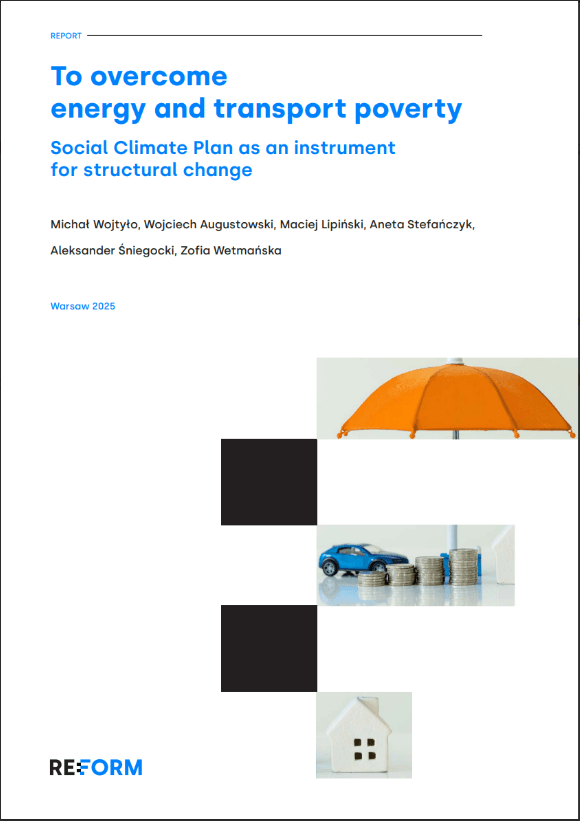"To overcome energy and transport poverty" – Reform Institute Report

About the project
After the implementation of the ETS2 system, heating and transport costs in Poland will rise – according to an Oeko-Institut ranking, this will be the second-highest cost increase in the European Union. At the same time, the Polish government will gain multi-billion revenues from this system. The key question is: how will these funds be used?
The Social Climate Fund (SCF) is an opportunity to support the social groups most vulnerable to energy and transport poverty. It can enable changes in the spirit of a just and fair transition. Poland will be one of the largest beneficiaries of the SCF. Up to €15 billion from EU and national sources may be allocated to fight energy and transport poverty. These funds could significantly improve the quality of life for millions of Poles, especially in small towns and rural areas. The condition is the preparation of a Social Climate Plan and the implementation of systemic changes.
What can be found in the report?
Social Climate Plan as an instrument for structural change
In the report, we analyze the scale of energy and transport poverty in Poland and propose systemic reforms and investments in the building and transport sectors that could help minimize the negative effects of ETS2 on the most vulnerable groups.
Some of the recommendations which can be found in the report are:
- Developing a comprehensive strategies aimed at combating energy and transport poverty
- Establishing a Government Plenipotentiary for Just and Fair Transition within the structure of the Chancellery of the Prime Minister, responsible for coordinating the implementation of the Social Climate Plan across both the building and transport sectors
- Creating a housing program for seniors affected by energy and transport poverty
- Developing a program for increasing energy efficiency of municipal buildings
- Introducing a new energy voucher
A just transition is a fundamental element in the path toward a net-zero economy. It requires addressing the needs of communities most exposed to the negative impacts of this transition and introducing tools to help mitigate those impacts.
We invite you to read the report available below.
Download documents
